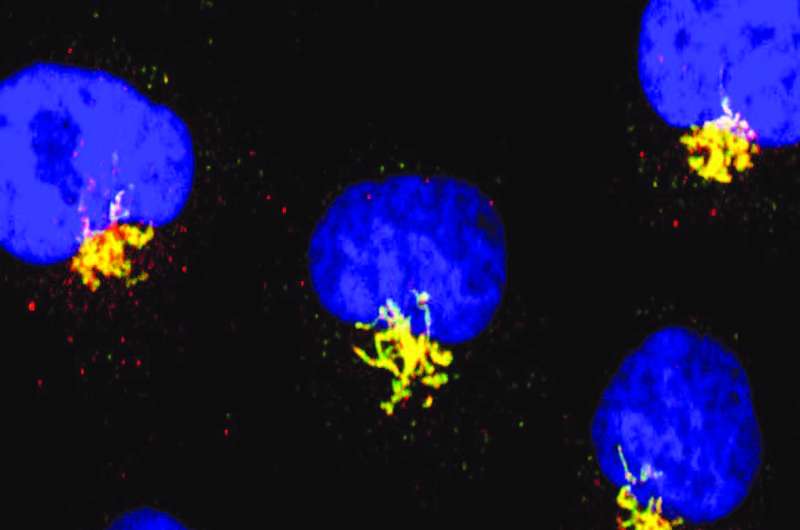Starvation causes atypical cell death

Researchers from the Cell death group of the Bellvitge Biomedical Research Institute (IDIBELL), led by Dr. Cristina Muñoz-Pinedo, have characterized the cell death process due to starvation, in which the endoplasmic reticulum plays a leading role. Their work, chosen as the cover of the latest Molecular and Cellular Biology journal, was carried out within TRAIN-ERs, a European collaborative action that studies diseases associated with this cellular organelle.
"Usually, programmed cell death—also called apoptosis—follows a biochemical pathway related to the permeabilization of mitochondria; However, we observed that in cases of cell death due to lack of glucose, cells die in an unexpected way, following a process similar to what we would expect from an immune response", explains Dr. Cristina Muñoz-Pinedo, last author of the study.
In cell-death-related treatments such as chemotherapy, the mitochondrial pathway is activated. Instead, when starved, cells activate the so-called "death receptors" on their membrane, which are normally used by the lymphocytes of the immune system to attack and destroy infected cells.
IDIBELL researchers have been able to relate the activation of these membrane receptors to the endoplasmic reticulum, a cellular organelle involved in protein synthesis and lipid metabolism, as well as intracellular transport. "Feeling the stress produced by the lack of nutrients, the reticulum send an alarm signal that triggers the appearance of death receptors in the membrane", says Dr. Muñoz-Pinedo.
"According to our in vitro results, we assume that this is how the tumor cells located in the center of a tumor—the so-called necrotic core—die, because there are never enough nutrients in those areas", adds the IDIBELL researcher. "On the other hand, in ischemia, besides the lack of oxygen there is also cell death due to lack of glucose, so this process could also be related to the activity of the endoplasmic reticulum at a biochemical level".
More information: Raffaella Iurlaro et al, Glucose Deprivation Induces ATF4-Mediated Apoptosis through TRAIL Death Receptors, Molecular and Cellular Biology (2017). DOI: 10.1128/MCB.00479-16
Journal information: Molecular and Cellular Biology
Provided by IDIBELL-Bellvitge Biomedical Research Institute



















